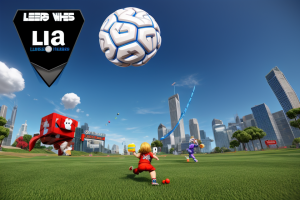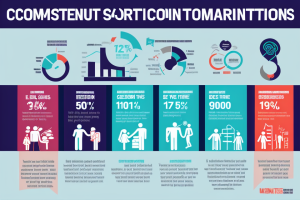
Are you looking for a game that will challenge your mind and keep you on your toes? Look no further! In this comprehensive guide, we will explore the world of quick thinking games and determine which one requires the sharpest mind. From classic board games to modern mobile apps, we will delve into the rules, strategies, and mental prowess needed to excel in each game. So, get ready to sharpen your mind and discover the ultimate game of intelligence.
The Importance of Quick Thinking Games
How Quick Thinking Games Benefit the Mind
Quick thinking games have gained immense popularity in recent years, with more and more people recognizing their benefits for the mind. These games require players to think on their feet, make split-second decisions, and come up with creative solutions to challenging problems. In this section, we will explore how quick thinking games benefit the mind and why they are worth incorporating into your daily routine.
Improved Problem-Solving Skills
One of the primary benefits of quick thinking games is that they help improve problem-solving skills. These games often involve puzzles, riddles, and challenges that require players to think outside the box and come up with innovative solutions. By regularly engaging in these activities, players develop their critical thinking skills, learn to approach problems from different angles, and become better equipped to handle real-life challenges.
Enhanced Memory Function
Quick thinking games also have a positive impact on memory function. Many games, such as memory games and card games, require players to remember specific pieces of information, such as the location of cards or the sequence of moves. Regularly engaging in these activities can help improve short-term memory, attention, and concentration, which can have a spillover effect on other areas of life, such as work and school.
Increased Cognitive Flexibility
Cognitive flexibility refers to the ability to adapt to new situations, think creatively, and approach problems from multiple perspectives. Quick thinking games require players to be flexible and adaptable, as they often involve changing rules, unexpected challenges, and unconventional solutions. By regularly engaging in these activities, players can improve their cognitive flexibility, learn to think on their feet, and become more resilient in the face of unexpected challenges.
Boosted Creativity
Finally, quick thinking games can also boost creativity. Many games, such as brainstorming games and improv games, require players to think creatively and come up with innovative ideas. By regularly engaging in these activities, players can improve their ability to generate new ideas, think outside the box, and approach problems from unique angles. This can have a positive impact on all areas of life, from work and school to personal pursuits and hobbies.
In conclusion, quick thinking games offer a wide range of benefits for the mind, from improved problem-solving skills to increased creativity. Whether you are looking to improve your cognitive function, boost your memory, or simply challenge yourself in new and exciting ways, quick thinking games are a great choice. So why not give them a try and see how they can benefit your mind today?
Types of Quick Thinking Games
There are several types of quick thinking games that are designed to challenge the mind and improve cognitive abilities. These games come in various forms and can be played by people of all ages. Some of the most popular types of quick thinking games include:
- Brain Teasers: These games are designed to challenge the mind and improve problem-solving skills. They can be in the form of riddles, puzzles, and other brain-teasing activities.
- Memory Games: These games are designed to improve memory and concentration. They can be in the form of memory matching games, memory puzzles, and other activities that require the player to remember information.
- Word Games: These games are designed to improve vocabulary, language skills, and cognitive abilities. They can be in the form of crossword puzzles, word searches, and other activities that require the player to think critically about language.
- Strategy Games: These games are designed to improve decision-making skills and strategic thinking. They can be in the form of chess, checkers, and other games that require the player to plan ahead and make strategic moves.
- Trivia Games: These games are designed to test knowledge and improve cognitive abilities. They can be in the form of quizzes, trivia games, and other activities that require the player to recall information.
These types of quick thinking games are not only fun, but they also provide numerous benefits to the player. They can improve cognitive abilities, increase brain power, and provide a sense of accomplishment when solved. Whether you are looking for a way to pass the time or improve your cognitive abilities, quick thinking games are an excellent choice.
Memory Games
Memory games are a popular type of quick thinking game that can be played by people of all ages. These games are designed to challenge your ability to remember and recall information, which can help improve your memory and cognitive skills. There are many different types of memory games, including matching games, memory cards, and word games.
Matching Games
Matching games are a type of memory game that require you to remember the location of objects or shapes. These games can be played with physical objects, such as a set of blocks or cards, or they can be played on a computer or mobile device. The goal of the game is to match the objects or shapes that are the same, based on their appearance or other characteristics.
Memory Cards
Memory cards are another type of memory game that can be played with a deck of cards. In this game, you must remember the location of the cards that have been turned over, and then try to match them with the cards that are still face down. The game continues until all of the cards have been matched.
Word Games
Word games are a type of memory game that challenge your ability to remember words and their meanings. These games can be played with physical cards or on a computer or mobile device. The goal of the game is to match the words that are the same, based on their spelling or definition.
All of these types of memory games can be played by individuals or in groups, and they can be adapted to different levels of difficulty based on the player’s skill level. By playing memory games, you can improve your memory and cognitive skills, which can have a positive impact on your overall brain health.
Strategy Games
- Definition:
- A game in which players make decisions and take actions in order to achieve a specific goal or set of goals.
- Involves planning, problem-solving, and critical thinking.
- Types of Strategy Games:
- Board games: Examples include chess, Go, and Monopoly.
- Video games: Examples include Starcraft, Civilization, and League of Legends.
- Card games: Examples include Bridge, Poker, and Magic: The Gathering.
- Benefits of Playing Strategy Games:
- Improves problem-solving skills.
- Enhances decision-making abilities.
- Increases critical thinking and analytical skills.
- Develops strategic planning and execution skills.
- Encourages creativity and out-of-the-box thinking.
- Examples of Strategy Games:
- Chess: A classic board game that involves players moving pieces on a grid to capture the opponent’s king.
- Starcraft: A real-time strategy game in which players build and control a base, create units, and defeat the opponent’s base.
- Bridge: A trick-taking card game that requires players to make decisions based on the cards they hold and the moves made by their opponents.
- Factors to Consider When Choosing a Strategy Game:
- Complexity: Consider the level of difficulty and the amount of time required to learn and play the game.
- Number of players: Consider the number of players required for the game and whether it is suitable for solo play.
- Genre: Consider the type of game, such as board, video, or card, and the theme or setting of the game.
- Personal preferences: Consider personal interests and preferences, such as the type of game mechanics or the style of gameplay.
Word Games
Word games are a popular form of quick thinking games that challenge players to use their vocabulary and language skills to solve puzzles, decode riddles, and outsmart opponents. These games come in various forms, each with its own unique set of rules and objectives. Some popular examples of word games include Scrabble, Boggle, and crossword puzzles.
Scrabble
Scrabble is a classic word game that involves players placing letter tiles on a game board to form words. Each player takes turns placing tiles, and the player with the highest-scoring word at the end of the game wins. Scrabble requires players to have a strong knowledge of vocabulary, as well as strategic thinking to maximize their score.
Boggle
Boggle is a word game that involves players looking for as many words as possible within a grid of lettered dice. Each player races against the clock to find as many words as possible, with the player finding the most words at the end of the time limit winning the game. Boggle requires players to have a quick eye for patterns and an ability to think on their feet.
Crossword Puzzles
Crossword puzzles are word games that involve filling in a grid of letters with words that fit the clues provided. These puzzles require players to have a strong vocabulary and an ability to think creatively to fill in the blanks. Crossword puzzles can be found in newspapers, magazines, and online, and they come in various levels of difficulty to suit different skill levels.
In addition to these popular examples, there are many other word games that challenge players to use their language skills to solve puzzles and outsmart opponents. Word games are a great way to keep the mind sharp and can be enjoyed by people of all ages and skill levels.
Top Quick Thinking Games to Test Your Sharp Mind
Game 1: Sudoku
Sudoku is a number-placement puzzle that requires you to fill a 9×9 grid with digits so that each column, each row, and each of the nine 3×3 subgrids contains all of the digits from 1 to 9. The puzzle is typically presented with some of the cells already filled in with numbers, and the goal is to fill in the rest of the cells based on the rules of the game.
The rules of Sudoku are simple:
- Each row must contain the numbers 1-9 without repetition.
- Each column must contain the numbers 1-9 without repetition.
- Each of the nine 3×3 subgrids must contain the numbers 1-9 without repetition.
To solve a Sudoku puzzle, you will need to use logic and deduction to determine which numbers can go in each cell. There are many different strategies for solving Sudoku puzzles, but some common techniques include using the elimination of candidates, looking for patterns, and using the process of deduction.
One of the reasons Sudoku is such a popular puzzle game is that it can be enjoyed by people of all ages and skill levels. Whether you are a beginner or an experienced puzzle solver, Sudoku can provide a fun and challenging experience. So if you’re looking to test your sharp mind, give Sudoku a try!
Game 2: Chess
Chess is a two-player strategy board game that requires sharp mind and critical thinking skills. The game is played on a square board with 64 squares of alternating colors. The objective of the game is to checkmate the opponent’s king by placing the player’s pieces in a way that the king is under attack and cannot escape.
How to Play Chess
The game starts with each player having 16 pieces, including one king, one queen, two rooks, two knights, two bishops, and eight pawns. The players take turns moving their pieces on the board, with the white player starting the game. The game ends when a player’s king is under attack and cannot escape, or when a draw is declared.
Strategies and Tactics
Chess requires players to use strategic and tactical thinking to outmaneuver their opponents. Players must plan ahead and anticipate their opponent’s moves, while also reacting to unexpected moves. The game is won by carefully positioning pieces to attack the opponent’s king, while also protecting one’s own king.
Benefits of Playing Chess
Playing chess has been shown to improve cognitive skills, including memory, concentration, and problem-solving abilities. The game also teaches players about strategy, tactics, and decision-making. Chess is a great way to improve critical thinking skills and enhance mental sharpness.
Resources for Learning Chess
For those new to the game, there are many resources available to learn how to play chess and improve one’s skills. Online tutorials, chess books, and apps can provide guidance on strategy and tactics, while also offering the opportunity to play against other players online.
Game 3: Mastermind
Mastermind is a popular game that has been entertaining players for decades. It is a game of codes and strategy, and it requires players to think quickly and critically to solve the puzzle.
The objective of the game is to crack the code by figuring out the correct sequence of the coloured pegs. The game is played with a set of pegs, each coloured differently, and a set of rules that determine how the pegs can be arranged.
The game is played by two players, one who creates the code and the other who tries to crack it. The creator of the code sets up a sequence of pegs, and the player who is trying to crack the code must try different combinations of pegs until they find the correct sequence.
To make the game more challenging, the creator of the code can set different rules for the arrangement of the pegs. For example, they may not allow certain colours to be next to each other or they may require a specific sequence of colours.
Mastermind is a game that requires sharp thinking and quick problem-solving skills. It is a great game for anyone who enjoys a challenge and wants to test their cognitive abilities. With its simple rules and endless possibilities, Mastermind is a game that can be enjoyed by players of all ages and skill levels.
Game 4: Tic-Tac-Toe
Tic-Tac-Toe is a classic two-player game that is easy to learn but difficult to master. The objective of the game is to get three in a row, either horizontally, vertically, or diagonally. The player who succeeds in getting three in a row first wins the game.
Here are some rules to play Tic-Tac-Toe:
- Each player takes turns to place a mark, either X or O, on a 3×3 grid.
- The first player to get three in a row wins the game.
- If all the positions on the grid are filled and no player has three in a row, the game is a draw.
- If a player gets three in a row, they win the game.
- Players take turns to place a mark on the grid.
Tic-Tac-Toe is a great game to test your sharp mind because it requires strategic thinking and quick decision-making. The game may seem simple, but it can be challenging to come up with the best move to win the game. To be successful in Tic-Tac-Toe, you need to think ahead and anticipate your opponent’s moves.
Tic-Tac-Toe is a great game for people of all ages and skill levels. It is a fun and easy game to play with friends and family, and it is a great way to improve your critical thinking skills. Whether you are a beginner or an experienced player, Tic-Tac-Toe is a game that will challenge your mind and keep you entertained for hours.
Game 5: 20 Questions
20 Questions is a classic guessing game that challenges players to determine the identity of a hidden object or person based on a series of yes or no questions. This game requires quick thinking and sharp mind to outsmart the other players by asking the right questions to arrive at the correct answer in the least number of questions possible.
How to Play:
- The game starts with one player thinking of a person, place, or thing, and the other players asking yes or no questions to try to guess what it is.
- The player who is thinking of the object must answer the questions with either a yes or no, and the other players take turns asking questions.
- The guessing player has 20 questions to arrive at the correct answer, or they lose the game.
- If the guessing player reaches the correct answer within 20 questions, they win the game.
Tips for Winning:
- Pay attention to the answers to narrow down the possibilities.
- Use general knowledge and trivia to your advantage.
- Use deductive reasoning to eliminate unlikely possibilities.
- Use common sense and logic to make educated guesses.
Why it Requires a Sharp Mind:
- This game requires quick thinking and sharp mind to come up with the right questions to arrive at the correct answer in the least number of questions possible.
- It requires deductive reasoning and logical thinking to eliminate unlikely possibilities.
- It requires a good memory to recall details and eliminate possibilities.
- It requires the ability to think on your feet and adjust your strategy as you go along.
Overall, 20 Questions is a challenging game that requires sharp mind and quick thinking to outsmart the other players and arrive at the correct answer in the least number of questions possible. With a little practice and some strategic thinking, anyone can become a master at this classic guessing game.
Game 6: Riddles
Riddles are a popular type of puzzle that challenge the brain to think critically and creatively. They come in many forms, from simple brain teasers to complex problems that require a deep understanding of logic and language. Riddles can be an enjoyable way to stimulate the mind and improve cognitive skills, making them a great choice for those looking to challenge their sharp mind.
- Select a riddle that matches your skill level and interests. There are many resources available online, including websites and apps that offer a wide variety of riddles to choose from.
- Read the riddle carefully and try to solve it on your own. Take your time and think through each step of the solution.
- If you get stuck, don’t be afraid to seek help. You can ask a friend or search online for clues or solutions.
- Once you have solved the riddle, try to explain your thought process to yourself or to someone else. This can help you better understand the solution and improve your problem-solving skills.
Benefits:
- Riddles can improve critical thinking skills by requiring the brain to analyze and deduce information.
- They can also enhance creativity by encouraging out-of-the-box thinking and exploring new ideas.
- Solving riddles can improve memory and concentration by engaging the brain in focused thinking.
- Riddles can be a fun and engaging way to challenge the mind and reduce stress.
Variations:
- Brain teasers: These are simple riddles that often rely on word play or unexpected solutions.
- Logic puzzles: These riddles require the use of logical reasoning to solve, often involving patterns or sequences.
- Math riddles: These riddles involve mathematical concepts and require the use of problem-solving skills.
- Mystery games: These are more complex riddles that often involve a story or scenario that must be pieced together to solve the puzzle.
Overall, riddles are a great way to challenge the sharp mind and improve cognitive skills. Whether you prefer simple brain teasers or complex mystery games, there is a riddle out there for everyone. So why not give one a try and see how your sharp mind fares?
Strategies for Winning at Quick Thinking Games
Mental Preparation Techniques
Mental preparation is a crucial aspect of winning quick thinking games. Here are some techniques that can help you to prepare your mind for these games:
- Mindfulness: Mindfulness is a technique that involves being present in the moment and focusing on your thoughts and feelings. It can help you to stay calm and focused during a game, which can improve your decision-making skills.
- Visualization: Visualization involves creating mental images of yourself playing the game and winning. This technique can help you to build confidence and motivation, which can improve your performance.
- Breathing Exercises: Deep breathing exercises can help to relax your mind and body, which can improve your concentration and focus. Taking a few deep breaths before starting a game can help you to get into the right mindset.
- Positive Self-Talk: Positive self-talk involves speaking to yourself in a positive and encouraging way. This technique can help to boost your confidence and reduce anxiety, which can improve your performance in quick thinking games.
- Physical Warm-Up: A physical warm-up can help to get your body ready for the game. This can include stretching, light exercise, or even dancing to get your blood flowing and your muscles warmed up.
By incorporating these mental preparation techniques into your routine, you can improve your chances of winning quick thinking games. It’s important to remember that mental preparation is just one aspect of winning, but it can make a significant difference in your performance.
Time Management Strategies
Proper time management is crucial in quick thinking games as it allows players to make well-informed decisions and react quickly to changing situations. Here are some effective time management strategies that can help players improve their performance in these games:
Prioritize Tasks
One of the most important time management strategies is to prioritize tasks. Players should focus on completing the most critical tasks first and avoid getting bogged down by less important tasks. This can help them make the most of their time and increase their chances of success.
Avoid Multitasking
While it may seem like multitasking is a good idea, it can actually be counterproductive in quick thinking games. Trying to do too many things at once can lead to confusion and errors, which can be costly in terms of time and resources. Instead, players should focus on one task at a time and complete it before moving on to the next one.
Use Time-Saving Tools
There are many time-saving tools available that can help players manage their time more effectively. For example, players can use a timer to help them stay on track and avoid wasting time. They can also use software tools that automate repetitive tasks, freeing up more time for other activities.
Practice Good Time Management
Finally, players should practice good time management skills. This means being aware of how much time they have available and using it wisely. It also means avoiding distractions and staying focused on the task at hand. By developing good time management skills, players can improve their performance in quick thinking games and increase their chances of success.
Analyzing Opponents and Adapting Strategies
In order to be successful in quick thinking games, it is crucial to understand the importance of analyzing your opponents and adapting your strategies accordingly. By paying close attention to your opponents’ moves and behaviors, you can gain valuable insights into their thought processes and predict their next moves. This knowledge can then be used to develop effective strategies that will give you an advantage over your opponents.
Here are some key strategies for analyzing opponents and adapting your strategies in quick thinking games:
- Observe your opponents’ patterns of play: Pay close attention to your opponents’ moves and try to identify any patterns or tendencies. For example, do they tend to make aggressive moves early on in the game, or do they prefer to play more defensively? By understanding your opponents’ patterns of play, you can anticipate their next moves and plan your own accordingly.
- Study your opponents’ body language and behavior: In addition to their moves, pay attention to your opponents’ body language and behavior. Do they seem confident or nervous? Are they paying close attention to the game, or are they easily distracted? By understanding your opponents’ nonverbal cues, you can gain valuable insights into their thought processes and motivations.
- Adapt your strategies based on your opponents’ strengths and weaknesses: Once you have a good understanding of your opponents’ patterns of play and behavior, you can begin to adapt your strategies accordingly. For example, if you notice that your opponent tends to make aggressive moves early on in the game, you may want to develop a more defensive strategy to counter their attacks. Conversely, if your opponent seems to be struggling to keep up with the game, you may be able to take advantage of their weaknesses and launch more aggressive attacks.
- Be flexible and adaptable: Finally, it is important to be flexible and adaptable in your strategies. Quick thinking games can be unpredictable, and it is important to be able to adjust your strategies on the fly based on changing circumstances. By staying flexible and adaptable, you can remain one step ahead of your opponents and increase your chances of winning.
Quick Thinking Games for Different Age Groups
Games for Children
Children’s brains are like sponges, absorbing new information and skills at an incredible rate. Quick thinking games for children can help improve their cognitive abilities, problem-solving skills, and hand-eye coordination. Here are some games that are perfect for young minds:
Memory Games
Memory games are a great way to improve children’s memory and concentration. Some popular memory games for children include:
- Memory Match: This classic game involves laying out a grid of cards with symbols or images on them. The player must remember the position of the cards and then try to match pairs of cards with the same symbol or image.
- Simon Says: In this game, one player gives instructions to the other players, starting with “Simon says.” The players must follow the instructions only if they start with “Simon says.” This game helps improve memory and listening skills.
Puzzle Games
Puzzle games are another excellent option for children. They help improve problem-solving skills and logic. Some popular puzzle games for children include:
- Jigsaw Puzzles: Jigsaw puzzles come in different sizes and complexity levels, making them perfect for children of all ages. These puzzles help improve problem-solving skills and hand-eye coordination.
- Block Puzzles: Block puzzles involve fitting different shapes into a container. This game helps improve spatial reasoning and problem-solving skills.
Logic Games
Logic games are perfect for children who enjoy a challenge. These games help improve critical thinking and reasoning skills. Some popular logic games for children include:
- Sudoku: Sudoku is a number-placement puzzle that involves filling a grid with numbers so that each row, column, and region contains all the numbers from 1 to 9. This game helps improve critical thinking and analytical skills.
- Connect Four: Connect Four is a two-player connection game in which players take turns placing colored discs into a vertical grid. The first player to get four of their discs in a row horizontally, vertically, or diagonally wins the game. This game helps improve strategic thinking and planning skills.
Overall, quick thinking games for children are a fun and engaging way to improve cognitive abilities and problem-solving skills. With so many games to choose from, parents and caregivers can find the perfect game for any child’s interests and abilities.
Games for Teenagers and Young Adults
Teenagers and young adults have different needs and preferences when it comes to quick thinking games. Here are some games that are suitable for this age group:
Scrabble is a classic word game that requires players to form words from letter tiles. It is a great game for improving vocabulary, spelling, and critical thinking skills. The game is played on a grid, and players take turns placing tiles on the board to form words. The goal is to score the most points by forming words with high-value tiles and placing them in strategic locations on the board.
Trivia Games
Trivia games are a great way to test knowledge and learn new information. These games can be played in person or online, and they can cover a wide range of topics such as history, science, sports, and pop culture. Some popular trivia games include Jeopardy!, Trivial Pursuit, and QuizUp.
Sudoku
Sudoku is a number-placement puzzle that requires players to fill in a grid with numbers so that each row, column, and region contains every number from 1 to 9. This game is great for improving problem-solving skills and analytical thinking. It can be played alone or with others, and there are many different levels of difficulty to choose from.
Pictionary
Pictionary is a drawing game where players take turns drawing a word and their teammates try to guess what it is. This game is great for improving creativity, communication, and observation skills. It can be played in person or online, and there are many different categories of words to choose from.
Overall, these games are great for teenagers and young adults who want to improve their critical thinking, problem-solving, and communication skills. They can be played alone or with others, and they offer a fun and engaging way to challenge the mind.
Games for Seniors
When it comes to quick thinking games, seniors can also enjoy the mental stimulation that these games provide. Here are some games that are suitable for seniors:
Word Games
Word games are a great way to keep the mind sharp, and there are many options available for seniors. One popular game is Scrabble, where players take turns placing tiles with letters on a board to create words. Another option is Boggle, where players race against the clock to find as many words as possible in a grid of letters.
Puzzle games are another excellent option for seniors who want to keep their minds active. Sudoku is a popular puzzle game that involves filling a grid with numbers so that each row, column, and region contains every number from 1 to 9. Another option is crosswords, where players fill in words in a grid based on clues.
Card Games
Card games are also great for seniors who want to keep their minds sharp. Bridge is a popular game that requires players to bid on the number of tricks they think they can take, and then play cards to try to win those tricks. Another option is Hearts, a game where players try to avoid taking certain cards and instead try to get rid of them.
Overall, there are many quick thinking games that are suitable for seniors, and these games can provide a fun and challenging way to keep the mind sharp.
Enjoying Quick Thinking Games with Friends and Family
Hosting Game Nights
If you’re looking to host a game night with friends and family, there are several factors to consider when selecting the right quick thinking games. First, it’s important to determine the number of players and the age range of those who will be participating. Next, consider the length of the game and the complexity of the rules. Additionally, take into account the type of game, such as trivia, card games, or party games. Finally, make sure to have a variety of games available to cater to different interests and skill levels. By considering these factors, you can ensure that your game night is a success and that everyone leaves with a smile on their face.
Online Communities for Quick Thinking Games
In today’s digital age, there are numerous online communities that cater to individuals who enjoy quick thinking games. These online platforms offer a variety of games that challenge players to think on their feet and use their cognitive abilities to the fullest. Some of the most popular online communities for quick thinking games include:
Online Game Platforms
One of the most popular ways to enjoy quick thinking games online is through various game platforms. These platforms offer a wide range of games that require players to think quickly and make split-second decisions. Some of the most popular online game platforms for quick thinking games include:
- Steam: This is a popular gaming platform that offers a variety of quick thinking games, including strategy games, puzzle games, and more.
- GOG: This platform offers a range of classic and modern games that require quick thinking and strategic decision-making.
- Xbox Live: This platform offers a range of fast-paced games that challenge players to think quickly and make split-second decisions.
Online Forums
Another way to connect with other quick thinking game enthusiasts is through online forums. These forums offer a space for players to discuss their favorite games, share tips and strategies, and connect with other players. Some of the most popular online forums for quick thinking games include:
- Reddit: This is a popular platform that offers a range of subreddits dedicated to quick thinking games, including strategy games, puzzle games, and more.
- BoardGameGeek: This is a popular forum that offers a space for players to discuss their favorite board games and share tips and strategies.
- GameFAQs: This is a popular forum that offers a space for players to discuss a range of video games and share tips and strategies.
Social Media Groups
Finally, social media groups offer a great way to connect with other quick thinking game enthusiasts. These groups offer a space for players to share their favorite games, discuss strategies, and connect with other players. Some of the most popular social media groups for quick thinking games include:
- Facebook: This platform offers a range of groups dedicated to quick thinking games, including strategy games, puzzle games, and more.
- Twitter: This platform offers a range of hashtags dedicated to quick thinking games, including #PuzzleGame and #StrategyGame.
- Instagram: This platform offers a range of accounts dedicated to quick thinking games, including @BoardGameGeek and @PuzzleNation.
Overall, there are numerous online communities for quick thinking games that offer players the opportunity to connect with other enthusiasts and enjoy their favorite games. Whether you prefer online game platforms, forums, or social media groups, there are plenty of options available for players to explore.
Competitive Tournaments and Events
If you’re looking to put your quick thinking skills to the test, competitive tournaments and events are the perfect way to do so. These events offer a challenging and exciting environment for players to showcase their abilities and compete against others.
One popular type of tournament is the “Jeopardy!”-style quiz bowl, where teams compete against each other in a fast-paced question-and-answer format. These tournaments often cover a wide range of topics, from history and science to popular culture and current events.
Another type of tournament is the “Trivia Night,” which is a more casual and social event. These events are often held at bars or restaurants, and players can form teams or compete individually. The questions are typically more lighthearted and entertaining, making it a fun night out with friends.
For those looking for a more serious competition, there are also online tournaments that offer cash prizes and recognition. These tournaments often have higher stakes and more rigorous qualifications, but they also offer the chance to compete against players from all over the world.
No matter what type of tournament or event you choose to participate in, competitive quick thinking games are a great way to challenge yourself and have fun with friends and family.
FAQs
1. What is a sharp mind game?
A sharp mind game is a type of game that requires players to think quickly and make decisions on their feet. These games often involve problem-solving, critical thinking, and strategy. They can be played alone or with others and are designed to challenge the player’s mental agility and sharpness.
2. What are some examples of sharp mind games?
There are many different types of sharp mind games, including chess, Sudoku, crosswords, Scrabble, and card games like poker and bridge. These games can be played in person or online and are a great way to keep your mind sharp and stimulated.
3. How can I improve my sharp mind skills?
One of the best ways to improve your sharp mind skills is to play games that challenge your brain. This can include playing games like chess or Sudoku, or trying out new games that require quick thinking and decision-making. You can also try puzzles, brain teasers, and other mental exercises to keep your mind sharp.
4. Are sharp mind games only for adults?
No, sharp mind games can be enjoyed by people of all ages. There are many games and activities designed specifically for children, such as memory games and puzzles, that can help to develop their critical thinking and problem-solving skills. Playing these types of games can be a fun and educational activity for kids of all ages.
5. Can playing sharp mind games improve my overall cognitive abilities?
Yes, playing sharp mind games can have a positive impact on your cognitive abilities. These games can help to improve your memory, attention, and problem-solving skills, as well as your ability to think quickly and make decisions on your feet. Playing these types of games regularly can also help to reduce the risk of cognitive decline as you age.





